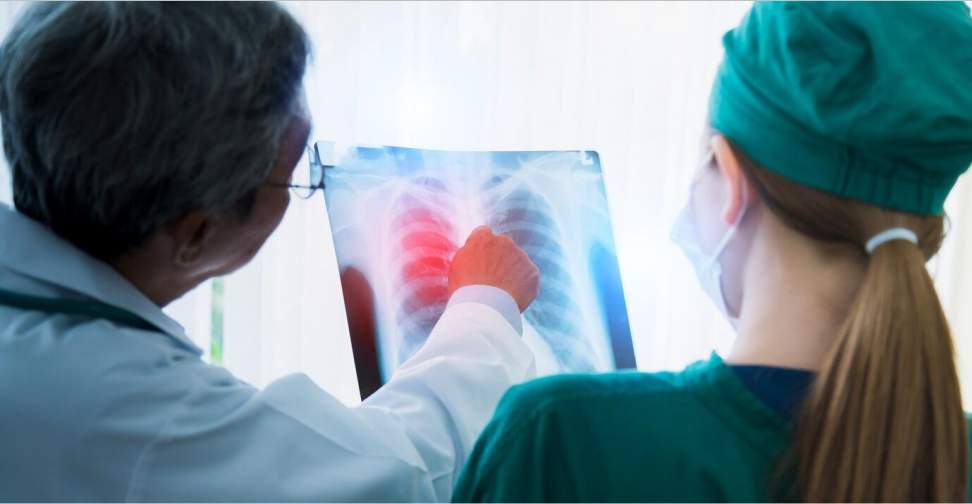

Chronic Obstructive Pulmonary Disease (COPD)
Our Services


Chronic Obstructive Pulmonary Disease (COPD)
Chronic Obstructive Pulmonary Disease (COPD) is a lung condition that gradually obstructs airflow, leading to breathing difficulties. It encompasses a group of conditions, primarily chronic bronchitis and emphysema, often caused by long-term exposure to irritants such as cigarette smoke, air pollution, or workplace dust and chemicals. COPD leads to symptoms like coughing, wheezing, and breathlessness, which worsen over time.
Causes and Risk Factors:
- Smoking:
Cigarette smoking stands as the primary cause of COPD. Over time, it damages the airways and air sacs in the lungs.
- Environmental Factors:
Prolonged exposure to indoor and outdoor pollutants, like secondhand smoke or occupational dust, can increase the risk of COPD.
- Genetic Factors:
A rare genetic disorder called alpha-1 antitrypsin deficiency can also contribute to COPD in some cases.
- Symptoms
Common symptoms of COPD include:
- Chronic cough
- Excessive mucus production
- Difficulty breathing, particularly during exertion
- Wheezing
- Chest tightness

Treatment:
COPD is a chronic condition with no known cure, but effective management can improve quality of life and slow its progression. Treatment strategies typically include:
- Smoking Cessation:
The most crucial step in managing COPD is to quit smoking. This can significantly slow disease progression and reduce symptoms.
- Medications:
*Bronchodilators:* Bronchodilators are pharmaceuticals that assist in relaxing and widening the air passages, thereby easing breathing difficulties.
*Inhaled Corticosteroids:* These are employed to decrease inflammation in the airways, aiding in the management of respiratory conditions.
*Phosphodiesterase-4 Inhibitors:* These drugs can reduce exacerbations in some cases.
- Pulmonary Rehabilitation:
This structured program includes exercise, breathing techniques, and education to improve lung function and overall well-being.
- Oxygen Therapy:
For severe cases, supplemental oxygen may be necessary to maintain adequate blood oxygen levels.
- Surgery:
In some advanced cases, lung volume reduction surgery or lung transplant may be considered.
- Vaccinations:
Influenza and pneumonia vaccines can help prevent respiratory infections that can worsen COPD symptoms.
- Lifestyle Changes:
Patients are advised to maintain a healthy diet, exercise regularly, and avoid exposure to lung irritants and pollutants.
- Emotional Support:
Emotional support and counseling can help patients and their families cope with the challenges of COPD.
Management of COPD is personalized to the individual’s needs and may involve a combination of these approaches. Regular follow-ups with healthcare providers are crucial for adjusting treatment as the disease progresses and ensuring the best possible quality of life for patients with COPD.

Any Questions find here.
A pulmonologist is a medical specialist who focuses on diagnosing and treating diseases and conditions related to the respiratory system. You should consult a pulmonologist if you have persistent breathing problems, chronic cough, chest pain, or a lung-related illness.
During your first visit, you can expect a thorough evaluation of your medical history, a physical examination, and potentially additional tests. Our pulmonologist will discuss your symptoms and develop a personalized treatment plan.
Yes, we are accepting new patients. Contact us to schedule an appointment and start your journey to better lung health.
In most cases, a referral is not required to see a pulmonologist. You can schedule an appointment directly with our clinic.
Get in Touch
Dr. Bhatt Chest Center
Hasthinapuram Central, Laxmi Narashima Puram Colony, Hastinapuram, Hyderabad, Telangana - 500 074.
Clinic Timings
Mon - Sat : 6pm to 9pm
Sunday Closed